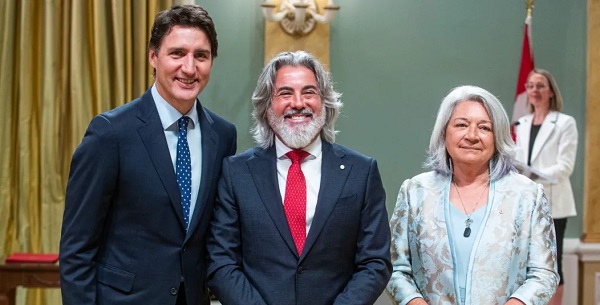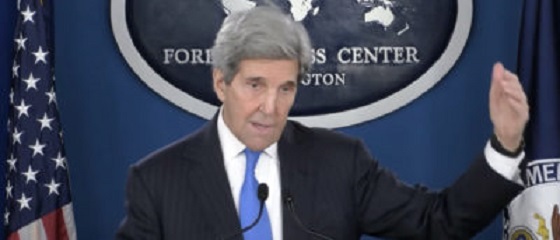Alberta
Cases against Ty Northcott Rodeo and Alberta pastors expected to crumble as court rules public health orders violated Charter rights

Alberta court strikes down public health orders that violated Charter freedoms
From the Justice Centre for Constitutional Freedoms
CALGARY, ALBERTA: The Justice Centre for Constitutional Freedoms is pleased with the Court of King’s Bench of Alberta’s decision to invalidate the public health orders of Dr. Deena Hinshaw, Chief Medical Officer of Health (CMOH), in Ingram v. Alberta. The court struck down these lockdown measures because they were effectively issued by Cabinet rather than by the CMOH. Dr. Hinshaw testified at trial that politicians were the final decision-making authority, and that she merely provided advice and recommendations.
With these health orders having been invalidated, it is expected that Crown prosecutors will need to withdraw charges against Ty Northcott/ Northcott Rodeo Inc., Pastor James Coates of Grace Life Church of Edmonton, Pastor Tim Stephens’ church, Fairview Baptist Church, and others.
The court’s ruling also confirms that lockdowns did violate Albertans’ fundamental freedoms of conscience, religion, association, and peaceful assembly protected in the Canadian Charter of Rights and Freedoms. In this court action, the Alberta government produced no comprehensive studies, reports or data analyzing lockdown harms. Without any comprehensive cost-benefit analysis, Justice Barbara Romaine nevertheless concluded that lockdowns were justified violations of Charter freedoms because they produced more good than harm.
Using the slogan “two weeks to flatten the curve,” the Alberta Government first declared a public health emergency in March of 2020, after which various Charter rights and freedoms were violated during the next two years. When Rebecca Ingram and other applicants filed their court action in December of 2020, the Alberta government had already been restricting Albertans’ rights to associate freely, assemble peacefully, and practice their religious beliefs for almost nine months. This was the first court challenge to lockdown measures in Alberta. In spite of Charter freedoms having already been violated for almost nine months, the court granted the Alberta government’s request to delay presenting its evidence until July of 2022.
In April 2022, Dr. Deena Hinshaw was cross-examined about what expert information she had at the time that these public health decisions were being determined. Dr. Hinshaw was specifically asked whether she was aware of any evidence of harms to elementary school children from being compelled to wear masks. Under oath, Dr. Hinshaw said no. Yet the court’s ruling in another case, C.M. v. Alberta, has revealed that Dr. Hinshaw did receive information about how children could be harmed by mandatory mask-wearing. A February 7, 2022 memo sent to Premier Jason Kenney, on which Dr. Hinshaw was copied, stated that masks can disrupt learning and interfere with children’s social, emotional, and speech development by impairing verbal and non-verbal communication, emotional signaling and facial recognition. Nevertheless, the Court dismissed an interlocutory application to compel Dr. Deena Hinshaw to re-attend court for further cross-examination.
“Significant injustice has taken place in the past three years under these draconian public health measures. We are hopeful this ruling will mean the withdrawal of charges against Pastor James Coates, Fairview Baptist Church, Ty Northcott, and other courageous citizens who refused to comply with unjust and utterly unscientific measures,” states John Carpay, President of the Justice Centre.
Alberta
New era of police accountability

The Police Review Commission (PRC) is now fully operational, giving Albertans a single, independent process to file policing complaints and ensure accountability.
Alberta’s government is putting the province at the forefront of police oversight in Canada with the creation of the PRC. This new commission replaces the current patchwork of police investigating police with one independent body responsible for receiving complaints, conducting investigations and overseeing disciplinary hearings. By centralizing these functions within a single, independent agency, Alberta is ensuring complaints are handled fairly and consistently.
“The Police Review Commission represents a new era in how Alberta addresses policing complaints. These changes are part of a broader paradigm shift where police are no longer seen as an arm of the state, but rather an extension and a reflection of the community they serve. As an independent agency, it is committed to fairness, accountability and public trust, ensuring every complaint is investigated impartially and resolved openly.”
The Police Amendment Act, 2022 laid the groundwork for this new model, establishing a modern approach to oversight built on accountability, consistency and public confidence. The PRC will manage the full complaints process from receiving and assessing, to investigating and resolving complaints related to police conduct, including serious incidents and statutory offences.
“The Alberta Association of Chiefs of Police welcomes the launch of the Police Review Commission as a meaningful step toward enhanced oversight and greater transparency in policing. By ensuring complaints are reviewed fairly and impartially, the Commission will help strengthen accountability and reinforce public trust in Alberta’s police agencies. Police leaders across the province are committed to working with the Commission and our communities to ensure every Albertan has confidence in the integrity of our police services.”
A timely and transparent complaint resolution process is essential for both the public and police. That is why the PRC must complete investigations within 180 days, and if more time is needed, the chief executive officer must publicly report on delays and provide justification. This ensures clarity, predictability and accountability throughout the process. The commission will be arm’s length from government and police services, meaning people can have greater confidence that their complaints will be investigated and resolved impartially.
“Our goal is to build trust in policing by delivering timely resolutions and fair, consistent outcomes that put people first. Every complaint will be reviewed thoroughly and handled with the transparency and respect Albertans expect and deserve.”
The PRC can also initiate systemic reviews related to police conduct or emerging trends without the need for a public complaint, and these reviews must be made public. Together, these measures create a clear, accountable process that strengthens transparency, supports continuous improvement and enhances trust in how police oversight is carried out across Alberta.
“Public safety and the confidence the public has in our police services and service members are incumbent for effective and responsible service delivery. The PRC has been developed so that Albertans may have a responsible and impartial mechanism to voice concerns regarding delivery of policing services in Alberta. I am confident that the PRC will be an inclusive and diverse representation of the communities, so we may better understand the most appropriate and effective way to respond to concerns regarding police services. I look forward to the positive outcomes for the community.”
The commission’s design was informed by engagement with Indigenous communities, law enforcement partners, municipal officials and community organizations, ensuring its structure and training reflect Alberta’s diversity and values.
Quick facts
- The PRC will handle complaints in three categories:
- Level 1: Death, serious injury and serious or sensitive allegations involving all police services in Alberta, as well as peace officer agencies.
- Level 2: Allegations of criminal and other statutory offences involving all police services in Alberta.
- Level 3: Complaints about non-criminal misconduct involving officers employed by municipal and First Nations police services.
- Complaints that fall outside the three categories will be referred to the appropriate bodies or agencies for review.
- The Alberta Serious Incident Response Team (ASIRT) will now operate under the PRC.
Alberta
Keynote address of Premier Danielle Smith at 2025 UCP AGM

-

 Agriculture2 days ago
Agriculture2 days agoHealth Canada pauses plan to sell unlabeled cloned meat
-

 Artificial Intelligence1 day ago
Artificial Intelligence1 day agoGoogle denies scanning users’ email and attachments with its AI software
-

 Health1 day ago
Health1 day agoOrgan donation industry’s redefinitions of death threaten living people
-

 Alberta2 days ago
Alberta2 days agoCarney forces Alberta to pay a steep price for the West Coast Pipeline MOU
-

 National2 days ago
National2 days agoAlleged Liberal vote-buying scandal lays bare election vulnerabilities Canada refuses to fix
-

 Daily Caller2 days ago
Daily Caller2 days agoJohn Kerry Lurches Back Onto Global Stage For One Final Gasp
-

 COVID-191 day ago
COVID-191 day agoFDA says COVID shots ‘killed’ at least 10 children, promises new vaccine safeguards
-

 Alberta1 day ago
Alberta1 day agoNet Zero goal is a fundamental flaw in the Ottawa-Alberta MOU






